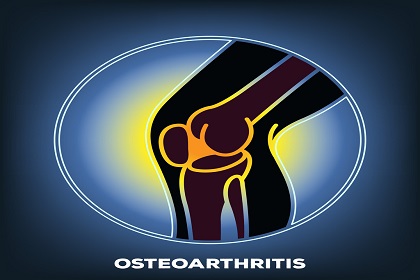Search
What are tension headaches?
Almost everyone has a headache from time to time. Tension headaches are by far the most common kind. People generally describe tension headaches as causing a dull pain in the forehead or at the sides and back of the head. Many people describe a tight feeling, as if a too-small hatband is squeezing the head. Some people also notice tenderness around the head, neck and shoulders. Tension headaches come on gradually and can last for as little as 30 minutes or as long as several hours or even days. The pain is usually mild to moderate. However, tension headaches can lead to other problems such as insomnia, fatigue, irritability, loss of appetite and difficulty concentrating.
What causes tension headache?
The exact cause of tension headache is unknown. In the past, doctors thought that tension headaches were connected to muscle contractions in the face, neck and scalp. They believed that these contractions were caused by tension or stress, thus the name ’tension headache.’ Although stress and lack of sleep are the most frequent triggers of tension headaches, doctors now believe that this kind of headache actually develops from changes in certain brain chemicals such as serotonin and endorphins.
Migraine may trigger tension headaches in people who have both kinds of headaches. Because women are somewhat more likely than men to develop tension headaches, some doctors suspect that there could also be a link with fluctuating estrogen levels. The formal medical name for tension headache is now tension-type headache to show that the connection between tension and these headaches is no longer considered direct.
What can I expect my doctor or nurse to do?
Your doctor or nurse will ask questions about your general health and your family’s health history. Sometimes headaches happen because of other medical problems and your doctor will want to rule out that possibility. You may have a physical exam.
You will also be asked questions about your symptoms - how often you have headaches and what the pain is like. There are three types of tension headaches based on how frequently they occur:
• Infrequent episodic tension headaches occur one day a month or less and the pain is usually mild
• Frequent episodic tension headaches occur at least once but no more than 14 days a month and the pain can be mild to moderate
• Chronic tension headaches occur 15 days or more each month and have been recurring for at least 6 months. The pain may be mild to severe
There are no medical tests to tell you are having tension headaches. The doctor will rely on the physical exam and your description of your symptoms for a diagnosis.
What is the treatment for tension headaches?
The treatment your doctor recommends for you will depend on how severe your headaches are and how often you have them. In most cases, over-the-counter (OTC) medicines are the first thing the doctor suggests. You may find fast, effective relief by taking OTC pain relievers such as aspirin, nonsteroidal anti-inflammatory drugs (NSAIDs) such as ibuprofen (Motrin, Advil), acetaminophen (Tylenol) and naproxen (Naprosyn, Aleve). In some cases, people find more relief with combination medicines such as aspirin or acetaminophen combined with caffeine. People with stomach problems, kidney disease and bleeding conditions should not use aspirin or NSAIDs.
People with severe chronic tension headaches may require stronger painkillers or preventive medicines to reduce the frequency and severity of headache pain. These include prescription medicines such as isometheptene combinations (Midrin, Duradrin) or butalbital combinations(Fiorinal, Fioricet). In a few cases, the doctor may recommend a group of medicines called triptans, medicines that act on serotonin, one of the chemicals that may be involved in triggering tension headaches.
Doctors sometimes prescribe antidepressants to prevent tension headache, especially the chronic form. These medicines are not painkillers and the doctor is not prescribing them because you are depressed. Instead, certain antidepressants work on headache by stabilizing the levels of brain chemicals such as serotonin, which may be involved in the development of your headaches.
It is important to know that frequent use of some prescription pain relievers could lead to dependency. Using any pain reliever too often may cause a ‘rebound effect’ in which the medicine interferes with the body’s natural painkilling mechanism, causing the pain to return, even stronger than before, once the medicine wears off. Also, some painkillers, prescription and OTC, can interact with other prescription or OTC medicines, so it's a good idea to check with your doctor about the benefits and risks of taking any medicine. Ask your doctor if you are not sure what medicine is right for you.
What can I do to help take care of myself?
Learning a stress management technique, such as meditation or yoga, often helps. Regular exercise is also beneficial. It’s also important to get enough sleep and maintain a healthy diet. Some people find that good posture helps them avoid headaches. Try to avoid sitting, standing or working in one position for long periods of time. Alternative therapies such as biofeedback, relaxation therapy, massage, and acupuncture may also help prevent and/or relieve tension headaches.
When should I call the doctor or nurse?
Seek medical care quickly for a headache that comes on rapidly, is unusually severe, or is far different from other headaches that you have had. Headaches that waken you from a sound sleep, are worse when lying down or worsen over time, come with fever or a stiff neck, follow a head injury, come with disturbed speech, numbness, weakness, blackouts or difficulty remembering things are not typical for a tension headache. Discuss these problems with your doctor promptly.
This document is intended to provide health related information so that you may be better informed. It is not a substitute for your care team’s medical advice and should not be relied upon for treatment for specific medical conditions.
© 2017 The General HospitalCorporation.
Primary Care OfficelnSite
developed by the MGH Laboratory of Computer Science and Division of General Internal Medicine
Click the link for more information on Family Medicine Clinical Service
Click the link for more information on Neurology Clinical Service











